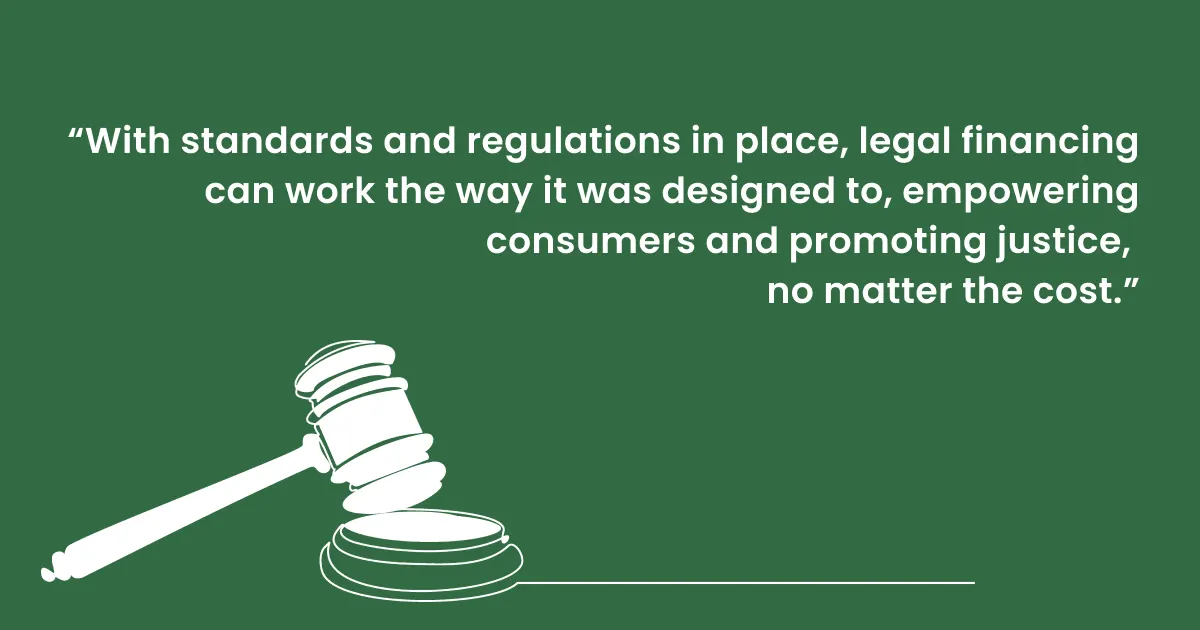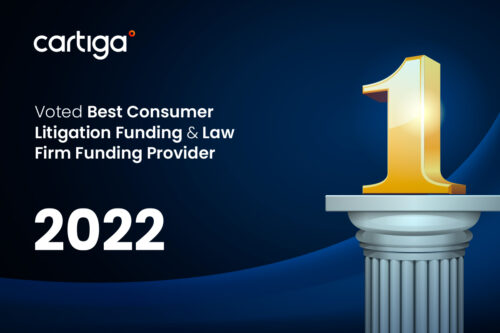In 2017, a legal funding company faced legal action when the Consumer Financial Protection Bureau (CFPB) and New York’s Attorney General sued them for misleading 9/11 victims about their contracts.
With the legal funding industry growing rapidly, clear disclosure of terms and costs has become increasingly important. This comprehensive guide explains what transparency means in legal funding, why it matters, and what consumers should expect from a transparent funding process.
What Does Transparency Mean in Legal Funding?
Transparency in legal funding refers to the clear and complete disclosure of all terms, costs, and conditions. It ensures that consumers can make informed decisions about their funding options while understanding both the benefits and obligations of the arrangement.
Key Components of Transparent Legal Funding
A truly transparent funding arrangement should include clear disclosure of several critical components:
1. Clear Disclosure of Funding Amount
Clear funding agreements spell out the exact amount received, any deductions, and the final amount that reaches the client’s pocket. The timing and method of payment should be clearly stated.
2. Comprehensive Cost Structure
Every agreement must outline repayment amounts at different stages, all associated fees, the yearly interest rate (APR), and any payment limits.
3. Payment Terms and Schedules
The agreement should specify when repayment is due, how funds get collected from legal settlements, and the duration of the funding period
4. Non-Recourse Nature
Legal funding companies should clarify a key feature of legal funding is that clients don’t pay if they lose their case. This protection means there is no risk to personal belongings, no credit checks, and no monthly payments.

Consumer Protection Measures
Consumer protection in legal funding goes beyond basic disclosures by including key safeguards to prioritize consumers’ interests. Attorney involvement is essential, as attorneys are required to review and approve funding agreements, ensuring clients fully understand the terms. This extra layer of oversight helps protect consumers from unfair practices.
Another important safeguard is the cooling-off period, which allows consumers to cancel the agreement within 3 to 5 business days, typically with no penalties and a full refund.
Regular updates from funding providers keep consumers informed about their funding status, including account statements, payoff amounts, and settlement progress. Clear communication channels ensure that any questions or concerns are addressed.
These measures collectively build trust and transparency, empowering consumers to make informed decisions and confidently navigate the funding process.
Industry Standards and Regulations
State Requirements
The legal funding industry operates under various regulatory frameworks designed to protect consumers while ensuring fair business practices. Several states have enacted specific legislation governing legal funding transparency to reinforce consumer protection. These requirements vary by jurisdiction but typically include:
- Registration and licensing requirements
- Rate caps and fee limitations
- Mandatory disclosure requirements
- Consumer protection provisions
Professional Guidelines
The legal funding industry has developed its own standards for transparency and ethical conduct:
- Best practices for disclosure
- Ethical guidelines
- Standardized documentation
- Consumer protection measures

“With standards and regulations in place, legal financing can work the way it was designed to, empowering consumers and promoting justice, no matter the cost.”
Benefits of Transparency
For consumers, it ensures a clear understanding of the terms, repayment amounts, timelines, and fees, helping to avoid confusion and hidden costs. This clarity empowers consumers to make informed decisions, plan financially, and understand their rights, including protections if the case is unsuccessful.
For attorneys, transparent agreements make it easier to guide clients and protect their interests. Clear documentation reduces miscommunication, simplifies settlement distributions, and helps attorneys meet their ethical obligations. By working with transparent funding providers, attorneys can ensure fair treatment for clients and avoid complications from unclear terms.
Best Practices for Consumers
Following best practices helps consumers protect their interests and maximize their funding arrangements.
Before accepting funding, carefully read all documentation to understand the terms. If anything is unclear, ask for clarification. Compare multiple options to find the best terms and consult with your attorney for guidance. Calculate potential repayment amounts to understand the financial impact.
During the funding period, effective management ensures a smooth process. Always maintain copies of documents and track communications with the provider. Regularly review account statements to stay informed on your funding’s progress. Staying in touch with your attorney is also important to address any concerns that may arise. By following these steps, you can ensure a transparent and well-managed funding experience.
Understanding Fee Structures
Fee structures in legal funding can be complex, but transparency requires that all fees be clearly disclosed and explained.
Fee Types
Funding agreements may include fees for initiation, document preparation, case monitoring, and fund disbursement.
Third-Party Fee Disclosure
In some cases, third parties may receive fees related to the funding arrangement. Agreements should disclose any payments to other parties, such as attorneys, case managers, or funding arrangers.
Conclusion
Transparency in legal funding protects consumers while ensuring the integrity of the funding process. By understanding these key elements, consumers can make informed decisions about their funding options and work effectively with both their attorneys and funding providers. Through clear disclosure, consumer protection, and established industry standards, transparent legal funding helps ensure that consumers can access the financial support they need while maintaining full awareness of their rights and obligations. Read about transparent consumer legal funding at Cartiga.
Note: This guide is for informational purposes only and does not constitute legal advice. Specific regulations may vary by state. Always consult with a legal professional before entering into any funding agreement.




